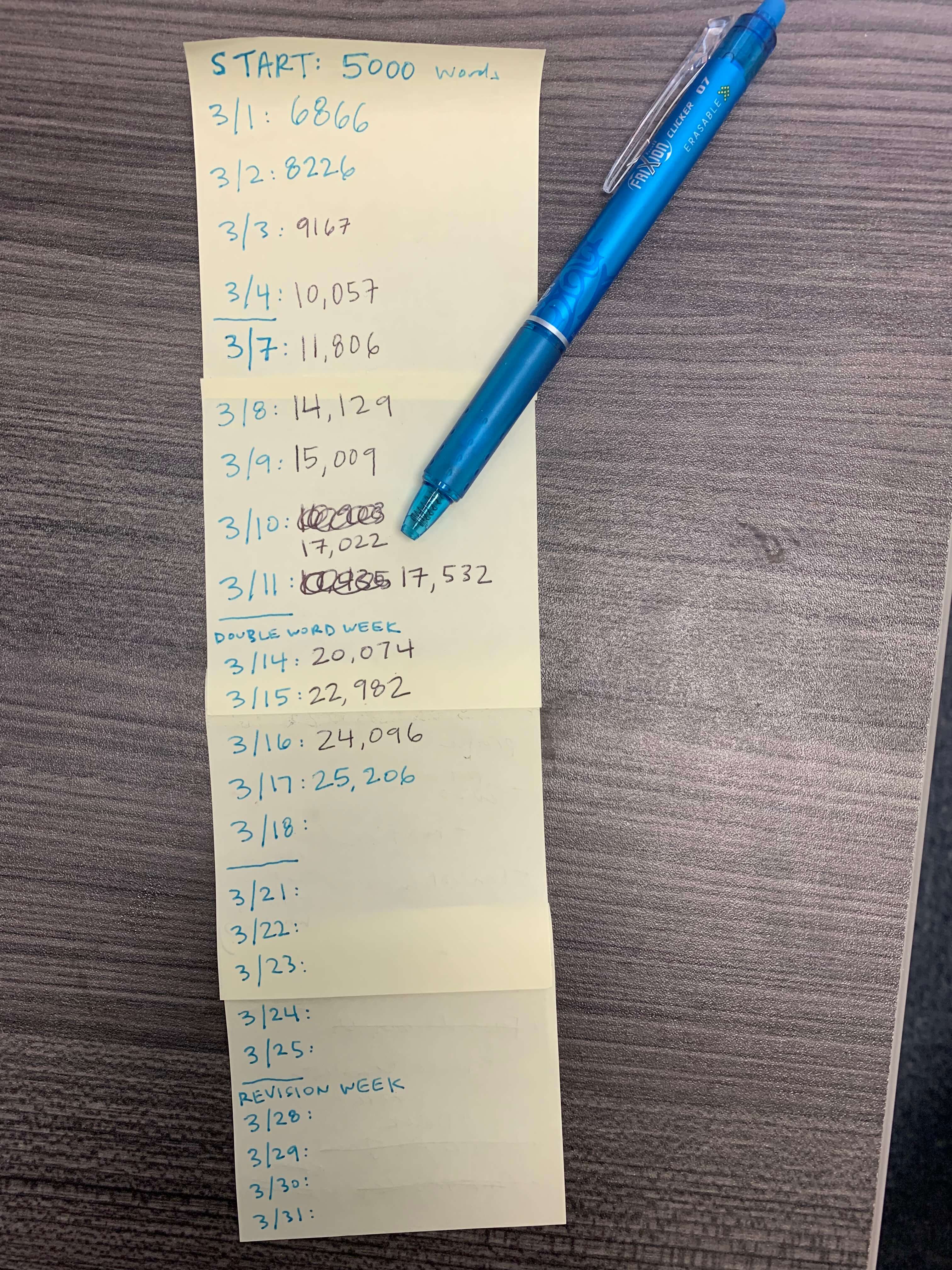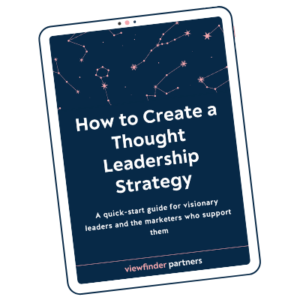How do you handle a big creative project? How do you break down what feels like a mammoth undertaking into manageable steps?
In other words: How do you write a book?
As I shared recently, I have been working on a ghostwritten book for several months, and it has culminated in a big month of focused writing. Over the course of this month, I’ve been sharing my daily word count progress on Twitter.

It’s been fun to celebrate my progress, but I have hesitated some days to share. I know that the daily word count doesn’t actually reflect the work that has happened behind the scenes. I worried that showing a quick progression – 1,000 words one day, 3,000 the next, suddenly we’re over 20,000! – laddering up to a completed manuscript over just one month would make people think I was writing too fast, or oversimplifying the complex process of writing a book, which takes most people years to complete.
But really, I have been working on this project in tandem with the author for years. We have put in many reps brainstorming and writing together, interviewing sources (in some cases on three separate occasions over multiple years), flagging additional material, and fine-tuning the language. And the author’s firm has a team of many very smart people who have weighed in over the years about the research and message. Most of the “writing” is really organizing and making decisions about which content will make the final cut, and where it will go.
So while this book might seem like something that was born and completed almost overnight, that’s not the whole story. Really, sharing my writing progress is part of my own personal challenge. I wanted to know: Could I complete a big, daunting writing project through brute force and focus over 30 days?
Turns out I can.
I think of myself as creative, and organized, and I’m definitely a fast writer. But I have to admit, I’m not a perfectionist, and I’m not a very methodical person. I get irritated by following step-by-step recipes, and I often skip chapters or skim when I’m reading. I like to do things my own way. So this writing project was a personal challenge. Could I stay focused every single workday for an entire month, staying accountable and forcing myself to make enough progress every day to finish the book without procrastinating or having to play catch-up?
Turns out I can!
The messy middle
Some days have been much harder than others. Specifically, the messy middle of this project surprised me at how tough it was to muddle through.
At first, I was making easy progress every day. 1,000 words a day wasn’t very hard. I worked for two or three hours every morning and got it done without much angst. This project is really more about organizing a big pool of ideas than it is about writing from scratch. And as I looked at my pool of ideas (my “extra material document,” 30-ish pages that ebbed and flowed as I dumped in anything I might be able to use), the pickings were good at first. I could work on the topics that were easiest — the “juiciest” ones, as I think of them — and the most interesting source material.
As the days wore on, the pickings grew slim. I hit the messy middle of the project, and I couldn’t seem to make any progress. I started to doubt whether I actually had enough material. As I revised and polished what I’d already written, my word count started to go backwards. I was losing confidence and I was second-guessing whether I could do this — and make it good.
On one particularly long Monday, I worked from 8 a.m. to 6 p.m. Every time I checked my word count, my stomach dropped a little more. I started at 17,532. At lunchtime, my count was 17,200. I laughed out loud. I wanted to cry. I took a walk. I raised my standing desk and did some stretches. I tried again. I read through my extra materials file again. I found an old interview that was the perfect fit for a tough chapter. I copied and pasted and refined and refined. Finally, finally, I ended the day at 20,074.
The next day, the author unearthed his own extra interview that I’d never seen before. The angels sang and I had new momentum, and new material.
As of today, I’m feeling confident. I can see the finish line of this project, and I’m proud of the work I’ve done. At the end of the month, I will have a finished manuscript — or at least the first draft of one. I have plenty of material. What has been difficult is channeling my own focus and momentum to keep the project going forward.
I have enjoyed this exercise in focus and discipline. As a B2B strategist, so many of my projects happen over the long term. They stretch and grow and change and evolve. They’re fuzzy. There is no finish line. But a book is different. There’s a firm deadline, and once the book is published, it’s over. There might be another book that comes after, but you let that published book go. That means I just have one chance to make this good, to live up to the author’s expectations, and to help him share his message. For his sake, I’m going my best to get it right. One word at a time.
Thanks for reading! This is an abridged version of my email newsletter, which I send every other Friday. Sign up (look for the form in the sidebar, over there –>) to get ideas for writers and thinkers, plus what I’m reading and what made me laugh this week.







